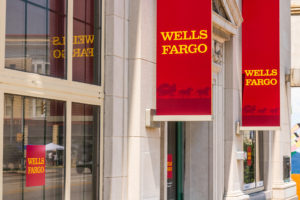Like it or not, the collective impact of the social media and viral news stories will be having a major effect on the ethical reputation of major companies. Take, for example, what is about to happen to the Wells Fargo corporation in the city of Seattle’s.
 It is no secret that Wells Fargo has been severely censured – and found guilty in a nationwide banking scandal. Among numerous other charges, the bank turned its retail and commercial banking operation into a “boiler room,” whereby hundreds of thousands of accounts were opened without the consent of banking clients.
It is no secret that Wells Fargo has been severely censured – and found guilty in a nationwide banking scandal. Among numerous other charges, the bank turned its retail and commercial banking operation into a “boiler room,” whereby hundreds of thousands of accounts were opened without the consent of banking clients.
These fictitious accounts were created as the result of pressure that the bank heaped upon its employees to produce more revenues, even if the tactics were completely unethical. The City of Seattle is not only cutting ties with Wells Fargo over their highly unethical sales tactics, but also on the basis of their environmental policies in regard to the Dakota Access Pipeline
The city could end all business relationships with Wells Fargo in 2019.
Every banking choice
Possibly, had the bank disavowed its environmental policies in regard to the pipeline, the City of Seattle might have been willing to work with Wells Fargo to maintain its contract. However, given the highly unethical behavior of the bank toward its employees and banking customers, the city could no longer support the organization. As is true of many other cases of bad ethics in all sorts of industries and organizations, every choice has a consequence.
When Wells Fargo started to push its employees to behave unethically they made a specific choice. When that choice was discovered by the media – and specifically, the social media – the choice turned into a major negative consequence. The collective voice of users of Facebook, Twitter and other sites created an unethical firestorm that is raging to this day despite the fact that the scandal broke more than a year ago. Though the executives who were identified as being the most culpable were terminated from the company, the negative ethical perceptions of Wells Fargo have not dissipated.
This is an important lesson in ethics for every organization, whether in the financial arena or not. If the choice is to be unethical, given all of the types of new social media and inter-connectedness, the consequences of unethical behavior will not only go viral but will not go away. The decision making that occurred within the Wells Fargo Corporation is as fresh today as it was a year ago. I would not be at all surprised if other cities took a page from Seattle.
In the boardroom
There was undoubtedly a time when unethical decisions, made in boardrooms behind closed doors, were discussed and implemented. Even though the unethical behavior might have been noted by a few newspapers, the damage to the corporation in other parts of the country may have been minimal to nonexistent.
Even though Wells Fargo is based in San Francisco, its unethical behavior affected the financial board members of the City of Seattle who voted down furthering their relationship with the bank by a unanimous vote.
The choices and consequences of Wells Fargo in this instance should serve as warning to any organization considering a sales or marketing tactic outside the realm of good ethics. My feeling at this point is that Wells Fargo has not heard the last of its unethical decision making policies on its business. This is a prime reason why the executives of any organization should receive effective ethical training, not just check off the box compliance meetings.
YOUR COMMENTS ARE WELCOME!


